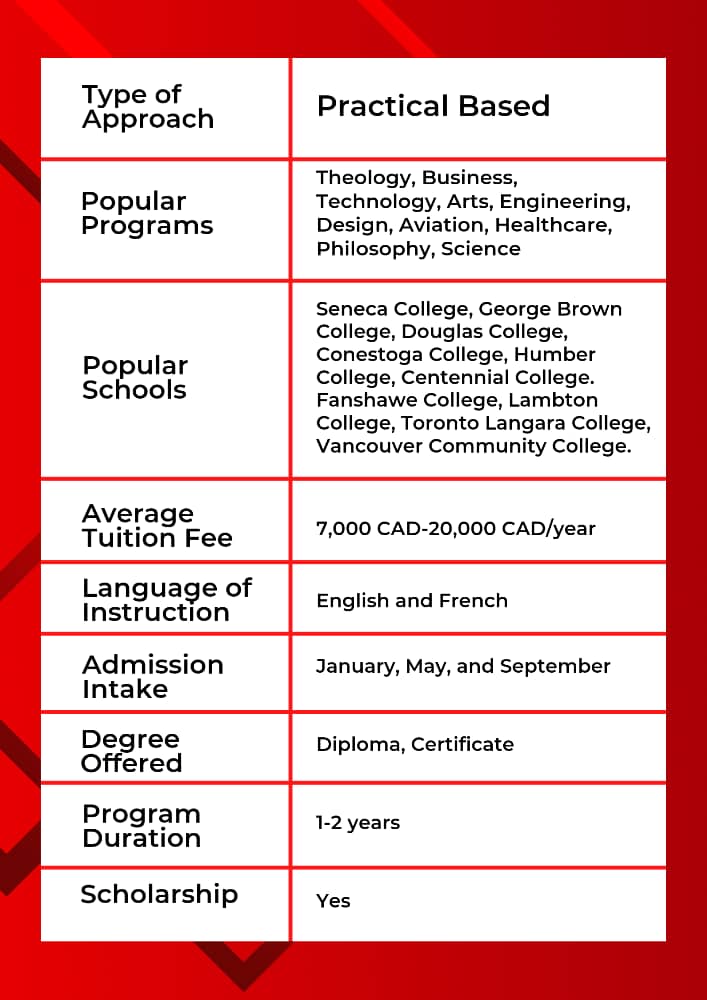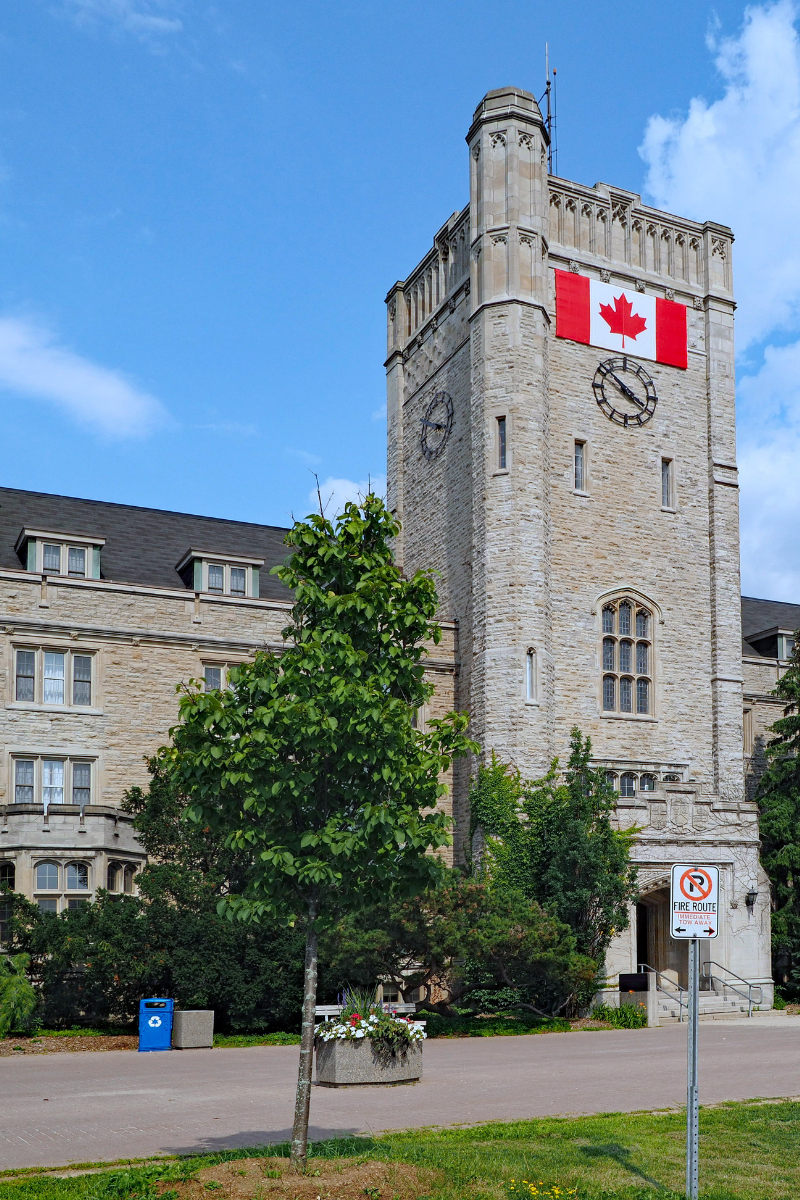International students looking to attend Colleges or Universities in Canada, this is for you!
Canada has always been a popular destination for international studies. In Canada, provinces or territories are responsible for designating schools at the post-secondary level. Two types of post-secondary education are available to students in the country: Universities and Colleges.
You might consider them the same, but they are different in Canada. As a result, it’s necessary to understand the difference between Colleges and Universities in Canada. This would help you to determine your educational and career path. The following will guide you on this educational decision.

Programs in Canada
Canadian colleges focus on specific employment skills and career training.
They offer practical training (apprenticeship training, language training, and skills upgrading). Some colleges in Ontario focus on agriculture, health science, art, or military programs.
Colleges in Canada offer students both full-time and part-time diploma and certificate programs. Most colleges only offer undergraduate degrees and tend to have fewer program offerings in general than universities.
On the other hand, university programs in Canada are more academic and professional while focusing on analytical skills. Unlike colleges, which grant diplomas, universities in Canada are degree-granting institutions. They offer degrees at the undergraduate and graduate levels.
There are two primary degrees you can obtain from universities in Canada:
Undergraduate degrees are known as Bachelor’s degrees and postgraduate degrees are known as Master’s or Doctorate degrees.
One significant distinction between college and university education in Canada is that universities typically place a strong emphasis on analytical abilities as well as academic and professional programs.
A quick overview of some universities in Canada:

A quick overview of some colleges in Canada:


Length and Cost of Program
In Canadian colleges, a certificate program is for a year or less, and a diploma program lasts for two or three years. Programs in Canadian colleges are usually more intensive than university programs because of the numerous training opportunities that allow students to get experience in their chosen fields. In general, tuition costs at Canadian colleges and universities are comparable. The main distinction is the length of time it takes to complete each of the programs. As a result, one is likely to spend more in university than in Canadian colleges.
Their average tuition ranges between 7,000 CAD- 20,000 CAD/year.
Canadian University programs take three to four years to complete if you study full time. However, the length of a program depends on the subject field, as some require long years to complete. You can enroll in a full course, which consists of five courses per semester, or a part-time study which consists of three or four courses every semester. The average fee for Canadian universities ranges between 10,000 CAD- 80,000 CAD/year.

Learning Style
In Canadian colleges, students have various ways of learning to gain experience in their chosen fields. This involves student-led discussions, work practices, and interactive classes. Also, online programs offer practical learning opportunities. Moreover, universities in Canada involve more lecture-based programs with only little opportunity for online courses. Colleges deal with more training and practice while universities involve students listening to the lecturer.
University programs provide more independence than many college programs. The number of self-directed studies increases in the later years of an undergraduate program, also during a Master’s and doctoral degree, and students can focus on more specific areas of interest.

Size
Canadian Colleges typically have smaller class sizes and provide students with more tailored attention from faculty and advisors because they are focused on one type of degree. Universities are generally larger than colleges. A university lecture hall can consist of over 100 students. Universities will demand a student to be more independent and experience more self-directed work.
Every year, thousands of students make their way to universities and colleges in Canada. When deciding between these two options, students often ask themselves if College is right for them. Most students look into a university first-hand as it seems more practical and appealing. College life is more laid back than university but still just as exciting. Both have great opportunities but ultimately it depends on whether you prefer bigger crowds or smaller ones, being in the country or the city, and many other things.
The possibilities that await you once you have your study visa in Canada are endless. You can continue developing your professional career and extend your stay as a permanent resident.
I hope you find this article informative and useful. If it was, please feel free to share it with your contacts who may be interested in studying in Canada. Click on the link below for more information on colleges and universities in Canada for international students: https://studyabroad.shiksha.com/canada/universities
Also view: Factors to consider when choosing to study in Canada, Why was my study Visa denied?



So insightful!
Thank you so much for this!